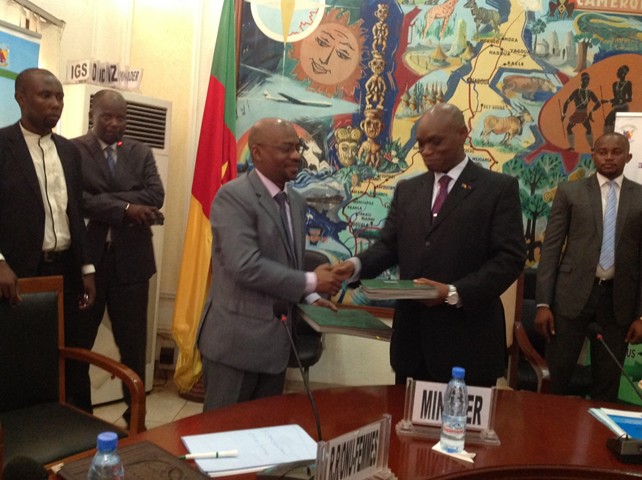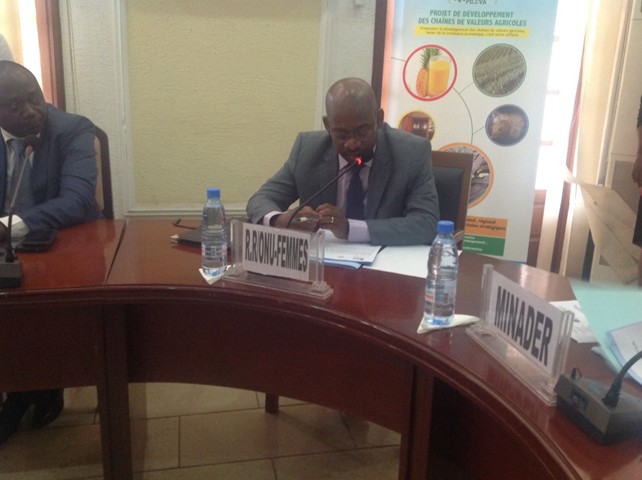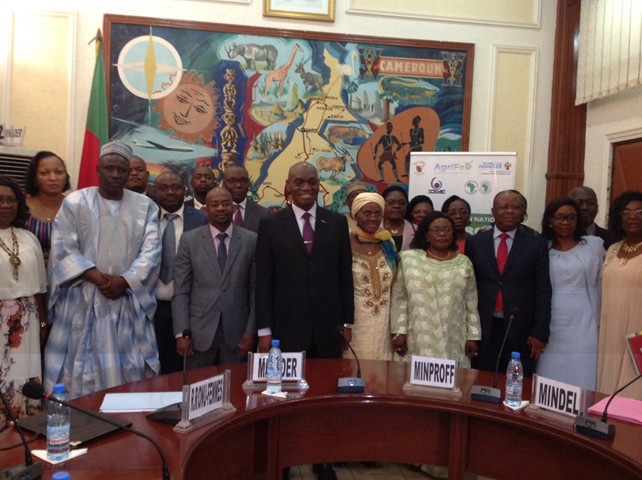Gender mainstreaming in agricultural value chain development in Cameroon
Date:
UN Women country office will furnish technical expertise to the project, in alignment with its on-going Women Economic Empowerment Flagship program, intended to enable rural women to produce better, sell more, and make more money from farm produce.

Yaounde February 13, 2018: UN Women Cameroon has signed a convention with the Ministry of Agriculture and Rural Development, to ensure the inclusion of women in all the segments of the agricultural value chain development program in the country. The partnership agreement, signed in Yaounde on February 13th, 2018, in the presence of the Minister of Women Empowerment and the Family and the Vice Minister of Agriculture in charge of Rural Development, paves the way for activities to start.
Speaking during the signing ceremony, the Minister of Agriculture, Henri Eyebe Ayissi, highlighted that women constitute 75% of the workforce in the agricultural sector, but are disproportionately overburdened by farming than their male counterparts. They lack information and innovative farming skills, have limited access to land and farm inputs, face enormous difficulties to transport their crops, and have poor storage facilities.
“Women can be an economic force if given the right skills and means”, Henri Eyebe Ayissi said.
He added that Cameroon would not maintain its place as an agricultural power in the Central African region if women are left behind. Therefore, they are the primary beneficiaries of the value chain initiative. The project would respond to their needs by providing them with adequate skills and equipment to make farming less tedious and more profitable.

While presenting the project, the Resident Representative of UN Women, Adama Moussa, emphasized that the economic empowerment of rural women is key to achieving women’s rights in Cameroon. He explained that UN Women has partnered with the government to implement similar projects in the past, and has the expertise needed in the domain.
As stipulated by the convention, UN Women’s role will focus on training program staff to be gender sensitive in planning and implementing activities; improve women’s representation at the management and decision - making levels of Cooperatives; build entrepreneurial and innovative farming skills in women; provide suitable equipment to ease the burden of farming; and develop context – specific technologies (BuyFromWomen) to facilitate access to ready markets.
The project aligns with the National Gender Policy objective of giving women and men equal opportunity in the economic and employment sectors. It is funded by the African Development Bank at the cost of 196.470.306FCFA, and will run from January 2018 to December 2020.

Alice Tatah